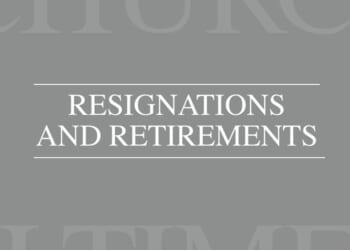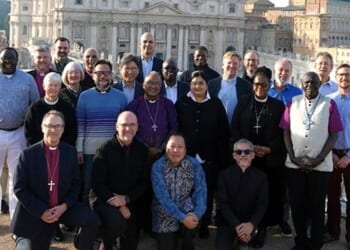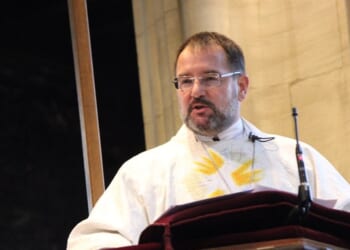PUBLIC services should be delivered “through places and people that are trusted” and not in a “top-down, soulless” way, the Mayor of Greater Manchester, Andy Burnham, has said.
Mr Burnham’s remarks came in the Theos annual lecture, which he delivered on Thursday, in Manchester. Mayor since 2017, he is a former Cabinet minister in Gordon Brown’s government and has been tipped as a successor to Sir Keir Starmer as the next leader of the Labour Party.
Mr Burnham spoke of a “big disconnect between people and politics, between government of all kinds and everybody else”, which had led people to lose trust “in the ability of politics to fix things”. He attributed this largely to “the demise of the local — local agency and local action”.
The State still tried to provide services “in a very top-down, quite soulless way”, he said. The benefits system, for example, operated a “soulless tick-box system, a ‘Computer says no’ approach that hammers the hope out of people at times”.
In the area of immigration and asylum, “the Home Office spends billions of pounds procuring accommodation through outsourced entities that don’t have any communication with the local communities in terms of procuring that accommodation” and that “are making millions of pounds of profits out of our system, but are providing very poor-standard accommodation”.
Mr Burnham continued: “Actually, if you work from the bottom with communities, wouldn’t we come up with a much more humane solution to that way of doing things?” A “paradigm shift” was needed, he said, “replacing the soulless with a new vision for the local state, with trust, community, faith, belief, connection at its heart.”
A significant moment had been when, as Health Secretary, he was presented with a list of areas to cut in the NHS, to save money. “The hospital chaplaincy service was number one on the list, and I said ‘No, no way.’ I said [this] because when my grandmother was in hospital in the last days of her life, and we arrived to see her, and she said ‘Has he been yet?’ she wasn’t talking about the doctor: she was talking about the priest. . . That was everything to her. . .
“The State really had no sight of the spiritual, and, in many ways, it pushed it to the margins.”
This had led Mr Burnham to realise that “if you don’t start with the person, with names, not numbers, you’ve no chance. You’ve got to kind of see people’s health as a combination, not just of physical, social, and mental, but spiritual, too. And, if you miss that, you’re missing what matters to people.”
Mr Burnham also paid tribute to the part that faith groups in Manchester had played during the pandemic. “We were worried about vaccination, and we couldn’t reach some of the communities that we knew we had to, to sort of really boost the uptake. And it was at that point, I remember somebody saying in our meetings, ‘Well, we must now go to the places of worship and see if they will open up and become vaccination centres.’ And it was revelatory, because when we did start to ask for their support, the vaccination rate started to change.
“And the learning for me there was, if you deliver through places and people that are trusted, you’ve then got a chance to make a difference. If you just keep thinking in the old way of doing things, we’re going to fail more and more people and miss the connection with them.”
Analysis, page 16

















